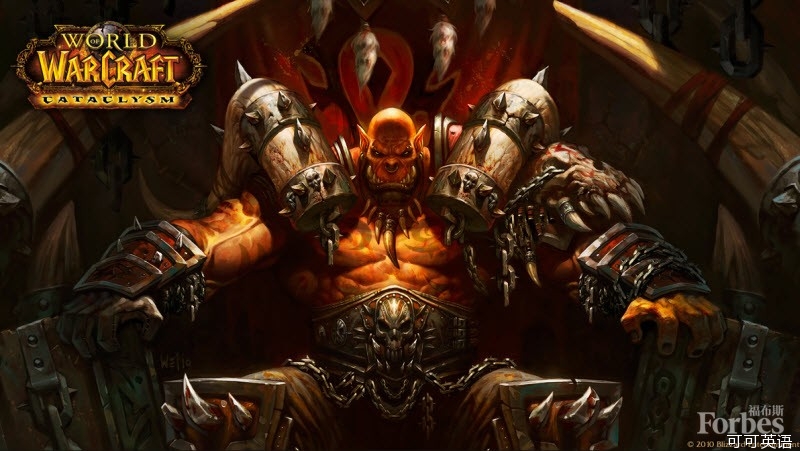(单词翻译:单击)

The Guardian recently said they have only published a very tiny percentage of the NSA documents provided to them by the now-infamous leaker Edward Snowden, and now a new revelation has taken a strange turn into the video game realm.
英国《卫报》(The Guardian)最近表示,他们此前只发布了由现在家喻户晓的泄密者爱德华?斯诺登(Edward Snowden)向其提供的美国国家安全局(NSA)文件中极小的一部分,而现在,有一条线索将泄密事件引向了一个奇怪的转折:电子游戏领域。
Documents provided by Snowden from 2008 say that the NSA and the UK’s GCHQ agencies planted agents inside MMOs like World of Warcraft and Second Life. The document, called Exploiting Terrorist Use of Games & Virtual Environments, was published this week, and tells tales of the spy agencies trying to track down terrorist communications through each of the games. Eventually, Xbox Live was considered a possible means for terrorist contact as well.
斯诺登提供的2008年的文件显示,美国国安局和英国政府通讯总部(GCHQ)旗下机构在诸如《魔兽世界》(World of Warcraft)和《第二人生》(Second Life)之类的大型多人网络游戏中安插了特工。这份名为《发掘游戏和虚拟环境的恐怖主义用途》(Exploiting Terrorist Use of Games & Virtual Environments)的文件于本周发布,讲述了间谍机构试图通过游戏来追踪恐怖主义通讯活动的努力。稍后,Xbox Live也被认为是恐怖分子进行联系的一个可能方式。
“Terrorists use online games – but perhaps not for their amusement, ” it says. “They are suspected of using them to communicate secretly and to transfer funds.”
“恐怖分子会玩在线游戏——但或许不是为了娱乐,”这份文件称,“我们怀疑他们利用游戏进行秘密沟通和转移资金。”
The idea was that games like World of Warcraft and Second Life could be used as under the radar avenues for communication between terrorist, and even help transfer funds.
这背后的思路是,《魔兽世界》和《第二人生》之类的游戏可能被恐怖分子用作秘密沟通的场所,甚至被用于转移资金之用。
“Al-Qaida terrorist target selectors and … have been found associated with Xbox Live, Second Life, World of Warcraft, and other GVEs [Games and Virtual Environments], ” the document says. “Other targets include Chinese hackers, an Iranian nuclear scientist, Hizballah, and Hamas members.”
“基地组织恐怖分子的目标包括(任务)挑选人……被发现和Xbox Live、《第二人生》、《魔兽世界》,以及其他GVE(游戏和虚拟环境)有联系,”上述文件称,“其他目标包括中国黑客、一位伊朗核科学家、真主党以及哈马斯成员。”
But the evidence was hardly conclusive. The data collected could have simply meant that someone in the same internet cafe was gaming, or that whatever PC was being used was at some point used to play video games at an indeterminate point in the past.
然而证据并不具有说服力。所收集的数据可能只是说明了,同在一个网吧的某人正在玩游戏,或者是正在被使用的某台电脑曾经在过去某个时间被用于玩游戏。
The document also shows that the NSA tried to recruit gamers to help with the project, but ultimately, it’s never said that they found any evidence of terrorists using either game for communication or collaboration, or that any terror plots were stopped through their work in the virtual realms.
这份文件还显示,美国国安局试图招募游戏玩家参与这个项目,但最终,文件却只字未提是否找到了有关恐怖分子利用游戏进行沟通或协作的证据,亦或是是否有恐怖主义计划因情报部门在虚拟领域采取的行动而被阻止。
Since the revelation, Blizzard has spoken out saying that they were “unaware of any surveillance taking place, ” and never gave the NSA permission to infiltrate the game. There’s no telling just how much data the NSA collected on “suspect” players, which could include everything from personal information to text or verbal in-game communication. Yet again, privacy seems to mean little to the NSA, in this world or virtual ones.
上述消息发布之后,暴雪公司(Blizzard)出声表示,他们“并不知晓任何正在发生的监控行为”,也从未给予美国国安局渗透其名下游戏的许可。没有信息显示,美国国安局到底就“可疑玩家”收集了多少数据,这些数据“可能包括从个人信息到游戏中的短信或语音交流等一切讯息”。不过话说回来,隐私对美国国安局来说几乎不构成问题,无论是在现实世界还是虚拟世界中。
It’s a strange story, but one that’s sort of familiar at this point. The NSA does something that sounds both simultaneously silly and invasive, and manages to come up with no tangible results in the process. It’s not an entirely ridiculous idea, and I imagine video games like these could theoretically be used for the nefarious purposes the NSA describes, but I’m having a hard time not laughing when picturing a bunch of government agents spending their workday grinding for XP and loot so they can reach the level of the elite terrorist guilds they want to infiltrate.
这是个奇怪的故事,但又在某种程度上令人觉得熟悉。美国国安局所做的事情,听起来既愚蠢,又具有侵略性,而且在整个过程中并没有出现实质性的结果。不过,其背后倒不是什么完全荒诞无稽的想法,我认为,此类电子游戏在理论上确实可以被用作美国国安局所描述的不法目的,但一想到一群政府特工每天上班时都在刻苦钻研怎样杀怪打经验和拾取掉落,以便于达到他们想要打入的精英恐怖分子团体所需的级别,我就忍不住地想要大笑一番。


